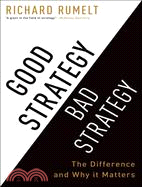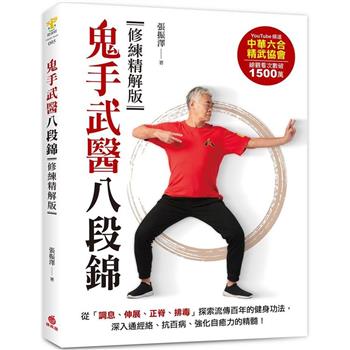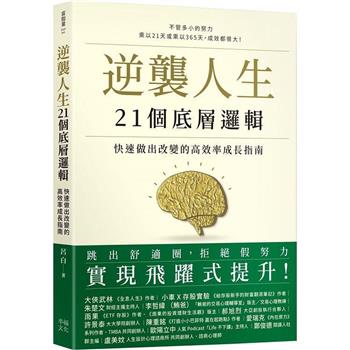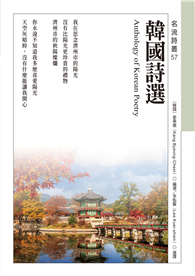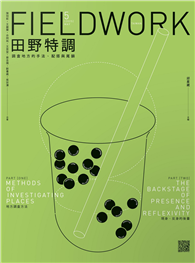策略的好壞決定了企業的成敗,不幸的是,好策略並不常見。發展與執行策略雖是領導人的首要任務,領導人卻時常誤把願景、業績目標、獲利率、市占率、甚至華麗空洞的口號當成「策略」。
皇冠製罐以「購併策略」迅速擴張,8年內成為全球最大的容器製商,公司股價、股東收益率和資本報酬率卻大幅滑落,「購併策略」為何無法帶來價值?
面對成屋銷售和房價漲勢皆停滯的情勢,雷曼兄弟以「市占率策略」因應,接受競爭對手拒絕的高風險貸款申請,不僅造成這家歷史悠久的投資銀行徹底垮台,還引發一場波及全球的金融災難。這個策略出了什麼問題?
美國的沙漠風暴行動成功擊退了入侵科威特的伊拉克軍隊,美軍採用的「包圍策略」出自軍方出版的《作戰綱要》手冊,一般人花25美元便能買到,這算是好策略嗎?
3D繪圖晶片設計廠商輝達,如何在短短幾年內迅速竄升,超越英特爾等大公司,獲《富比士》雜誌評選為年度最佳企業,它又採取了哪些策略?
「策略大師中的大師」魯梅特教授指出,真正的好策略是針對企業所處情勢的「問題」或「挑戰」,清楚而明智的思考。他分析「好策略」的三大核心要素、「壞策略」的四大特徵,及好策略的九大力量來源。結合他多年來對經濟、金融、科技、歷史、人類性格的觀察、教學與顧問實務,誠實地面對並探究表象底下的種種艱難問題。
本書從商業、非營利機構和軍事等領域列舉許多精采案例,包括:蘋果、沃爾瑪、輝達、矽圖、蓋堤基金會、思科系統、通用汽車、帕卡重型卡車、登月計畫、教育改革、伊拉克戰爭、阿富汗戰爭,及金融危機等,剖析好策略與壞策略從原始構想、進展、結果的過程。
Clears out the mumbo jumbo and muddled thinking underlying too many strategies and provides a clear way to create and implement a powerful action-oriented strategy for the real world
Developing and implementing a strategy is the central task of a leader, whether the CEO at a Fortune 100 company, an entrepreneur, a church pastor, the head of a school, or a government official. Richard Rumelt shows that there has been a growing and unfortunate tendency to equate Mom-and-apple-pie values, fluffy packages of buzzwords, motivational slogans, and financial goals with “strategy.” He debunks these elements of “bad strategy” and awakens an understanding of the power of a “good strategy.”
A good strategy is a specific and coherent response to — and approach for overcoming — the obstacles to progress. A good strategy works by harnessing and applying power where it will have the greatest effect in challenges as varied as putting a man on the moon, fighting a war, launching a new product, responding to changing market dynamics, starting a charter school, or setting up a government program. Rumelt’s nine sources of power — ranging from using leverage to effectively focusing on growth — are eye-opening yet pragmatic tools that can be put to work on Monday morning.
Surprisingly, a good strategy is often unexpected because most organizations don’t have one. Instead, they have “visions,” mistake financial goals for strategy,
and pursue a “dog’s dinner” of conflicting policies and actions.
Rumelt argues that the heart of a good strategy is insight — into the true nature of the situation, into the hidden power in a situation, and into an appropriate response. He shows you how insight can be cultivated with a wide variety of tools for guiding your
own thinking.
Good Strategy/Bad Strategy uses fascinating examples from business, nonprofit, and military affairs to bring its original and pragmatic ideas to life. The detailed examples range from Apple to General Motors, from the two Iraq wars to Afghanistan, from a small local market to Wal-Mart, from Nvidia to Silicon Graphics, from the Getty Trust to the Los Angeles Unified School District, from Cisco Systems to Paccar, and from Global Crossing to the 2007–08 financial crisis.
Reflecting an astonishing grasp and integration of economics, finance, technology, history, and the brilliance and foibles of the human character, Good Strategy/Bad Strategy stems from Rumelt’s decades of digging beyond the superficial to address hard questions with honesty and integrity.
★本書中譯版《好策略壞策略》由天下文化出版。
作者簡介
魯梅特 Richard P. Rumelt
哈佛大學商學院博士。現任加州大學洛杉磯分校安德森管理學院Harry & Elsa Kunin社會與商業課程首席教授,曾在歐洲工商管理學院任教多年。他為山繆高德溫電影公司(Samuel Goldwyn Company)和殼牌(Shell International)等知名的跨國企業、教育界、非營利組織擔任顧問,協助企業理清思路、擬定策略,迎接挑戰。
他的研究開啟了以資源為基礎的策略分析,是目前全球管理學和策略領域最具影響力的思想家。《經濟學人》(The Economist)稱他為當今管理概念和企業實務二十五大最具影響力人物之一,《麥肯錫季刊》(McKinsey Quarterly)稱他為「策略大師中的大師」、「策略領域的巨人」。
RICHARD P. RUMELT is one of the world’s most influential thinkers on strategy and management. The Economist profiled him as one of twenty-five living persons who have had the most influence on management concepts and corporate practice. McKinsey Quarterly described him as being “strategy’s strategist” and as “a giant in the field of strategy.” Throughout his career he has defined the cutting edge of strategy, initiating the systematic economic study of strategy, developing the idea that companies that focus on core skills perform best, and that superior performance is not a matter of being in the right industry but comes from a firm’s individual excellence. He is one of the founders of the resource-based view of strategy, a perspective that breaks with the market-power tradition, explaining performance in terms of unique specialized resources. Richard Rumelt received his doctoral degree from Harvard Business School, holds the Harry and Elsa Kunin Chair at the UCLA Anderson School of Management, and is a consultant to small firms such as the Samuel Goldwyn Company and giants such as Shell International, as well as to organizations in the educational and not-for-profit worlds.
